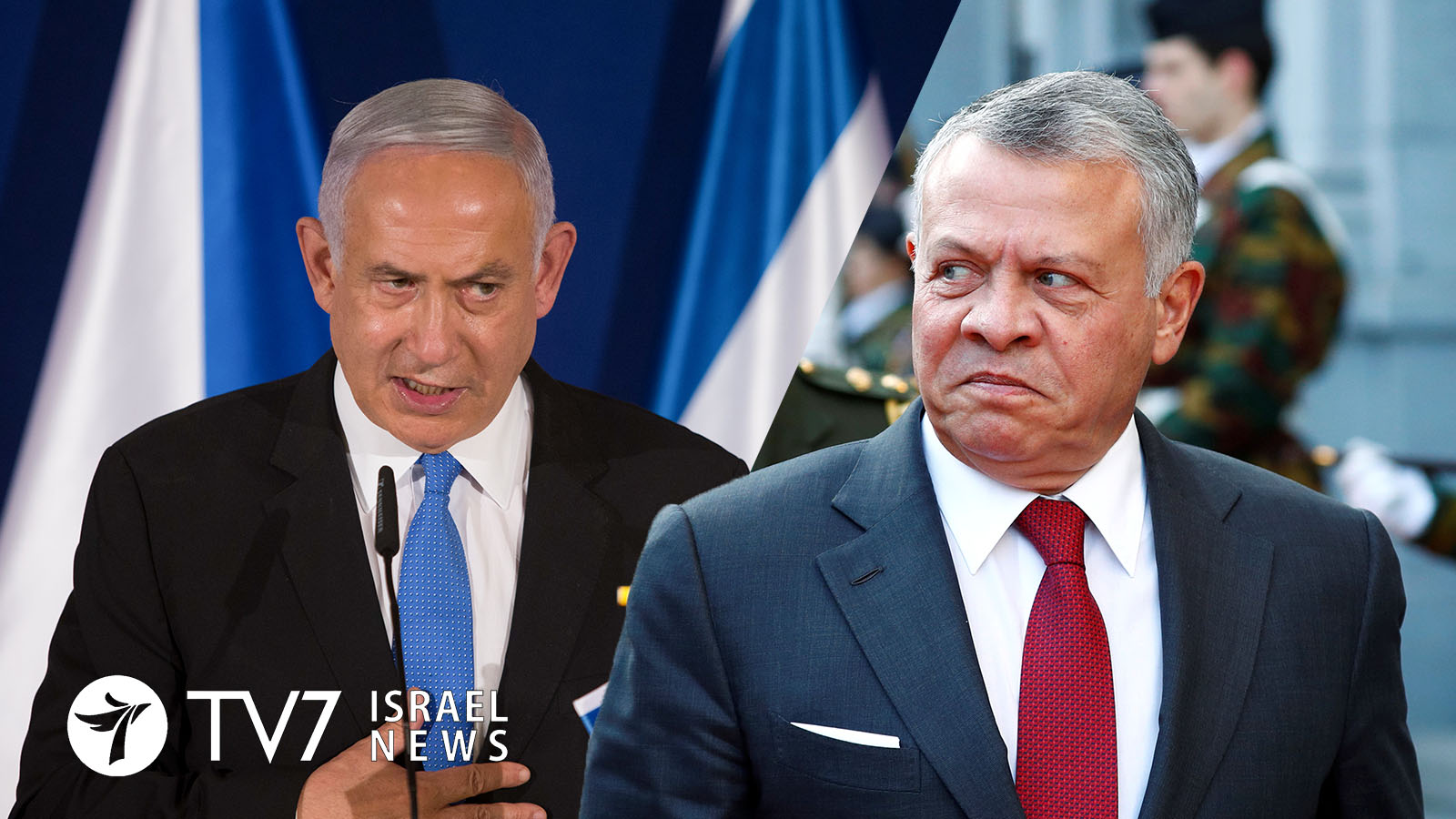The first-ever official visit to the United Arab Emirates by Israeli Prime Minister Benjamin Netanyahu was forced to be postponed after neighboring Jordan delayed granting overflight rights drew a rare rebuke from Amman over a contested Jerusalem holy site.
According to a statement TV7 obtained from the Prime Minister’s Office, the “difficulties” with the Hashemite Kingdom “apparently stemmed from the cancellation of the Jordanian Crown Prince’s visit to the Temple Mount due to a disagreement over security procedures at the site.”
Eventual approval from Amman to use its airspace came too late for Netanyahu’s itinerary on Thursday , which included meeting his visiting Hungarian and Czech counterparts after having returned from the lightning trip to the UAE trip, said the statement.
Netanyahu later said that that there had been a “misunderstanding, difficulties in coordinating flights because of an incident yesterday” related to the planned Jordanian visit to Al Aqsa, and that even though “It took us a few hours to put things right…I can now fly over Jordan, but until this coordination was achieved, it was not possible to visit (the UAE) today.”
The Israeli leader said he had spoken to Abu Dhabi’s Crown Prince Sheikh Mohammed bin Zayed al-Nahyan, who agreed to reschedule their planned talks “very soon.”
The agenda for those discussions will be topped by mutual cooperation in the fight against the coronavirus. Citing Israel’s Green Pass program for fully-vaccinated citizens, he said both nations want to establish a corridor for travel between the two countries.
Prime Minister Netanyahu also revealed that the UAE intends “to invest a gigantic sum of $10 billion…in various projects…and we are already discussing these specific projects,” but declined to provide additional details on the nature, timetable, funding or implementation of the initiatives.
Meanwhile, Jordanian Foreign Minister Ayman al Safadi confirmed that the kingdom’s Crown Prince Hussein Bin Abdullah had canceled his plans to join Palestinian worshippers during a service at Al Aqsa Mosque over an unspecified dispute with Israel regarding security arrangements.
The mosque is Islam’s third holiest site and located in Jerusalem’s Old City, which Israel captured in the 1967 Six Day War. It was built on the ruins of both biblical temples revered by Jews and Christians worldwide.
Safadi said Israel had altered an agreed-upon program for the crown prince that Jordan viewed compromising the rights of Palestinians and other Muslim worshippers. “The Aqsa in its entirety is a place of worship for Muslims and Jordan won’t allow any interference in its affairs and Israel has no sovereignty over it,” the Jordanian Minister insisted on state TV.
Israel and the United States regard all of Jerusalem as its “eternal and indivisible capital.” Although it recognized Jordan’s Hashemite ruling family as the custodian of the Muslim and Christian holy sites on the eastern side of city as part of the two countries’ 1994 peace treaty, Israel maintains overall security control over area, which has often been a flashpoint of Palestinian violence.
Israel cites security concerns for restricting the access of Palestinians in the occupied West Bank to the site and any limits it imposes on the number of Muslim worshippers allowed into the compound.
Amman has long condemned what it says are Israeli efforts to restrict non-Jewish access to the 14-hectare (35-acre) compound, which is known Jews as the Temple Mount and Muslims as the Haram al-Sharif Noble Sanctuary.
Netanyahu’s first high-profile UAE trip had been intended to showcase his diplomatic prowess in formalizing relations with 4 Arab states as part of the Abraham Accords, just weeks before his reelection bid in the 23 March Israeli elections. It had been widely speculated he might seize the opportunity while there to hold talks with Saudi Arabia’s de facto ruler Crown Prince Mohammed bin Salman.
His coalition partner and political rival Benny Gantz, who reportedly held recent talks with Jordanian King Abdullah 11, released a statement about the cancelation and “incident” with the Hashemite Kingdom.
According to the communique TV7 received from his Blue and White political party, Alternate Premier and Defense Minister Gantz said, “Jordan is Israel’s strategic partner. The defense and diplomatic ties we share are a cornerstone of our national security approach. I wish to state clearly that Israel is committed to the agreements we share with Jordan and has the highest regard for King Abdullah and the Jordanian government.”
He went on to charge that “Unfortunately, Netanyahu’s conduct in recent years has done significant damage to our relations with Jordan, causing Israel to lose considerable defensive, diplomatic and economic assets.”
“I will personally work alongside the entire Israeli defense establishment to continue strengthening our relationship with Jordan, as well as with Egypt — countries with whom we’ve had enduring peace accords for years — while also deepening ties with other countries in the region,” vowed the Defense Minister.
